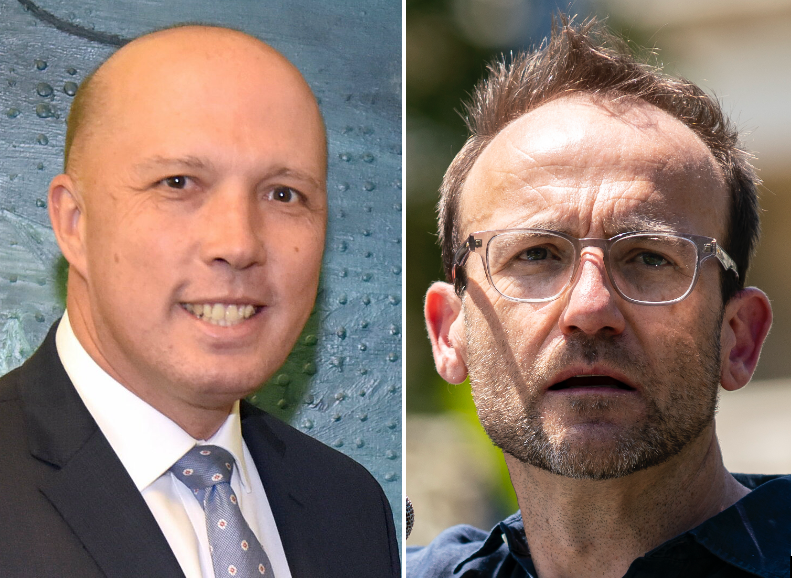Whistleblowers understand networks. Whistleblowers are scapegoated by them. When whistleblowers prevail, it is often because one network takes on another. The case of Ben Roberts-Smith is such a case.
Truth is the bystander.
War legitimises murder. When I first read my grandfather’s diary from the Western Front in World War I, I read of an implied legitimacy to kill or be killed. They were not war criminals, but they still engaged in murder. The real criminals were those who had authorised the war.
The orchestrators of war rarely fire a shot; and more rarely are they prosecuted for their crimes. Take for example the case of Henry Kissinger who recently celebrated his 100th birthday. Kissinger is widely regarded as a war criminal. He advised Nixon to bomb Cambodia, leading to the dissolution of that country and to the rise of the Khmer Rouge. Kissinger was responsible for more civilian deaths in Cambodia than previously known, according to an archive of U.S. military documents and interviews with Cambodian survivors.
Kissinger bears significant responsibility for the attacks in Cambodia that killed as many as 150,000 civilians. Kissinger’s crimes did not stop there. He derailed the Vietnamese peace talks in 1972 to help Nixon get re-elected, only to accept the Nobel Peace Prize for himself in 1973.
He played a significant role in the coup against Salvador Allende in 1973, he underwrote the genocide of the Kurds, he interfered in Angola. He was a master war criminal who was never prosecuted. In 1974, journalist Ted Koppel described Kissinger as the most admired man in America. Journalists could not see through the fog of the urbanity of Henry Kissinger. He was protected. He never should have been protected.
Roberts-Smith is in a different category, but the problem is the same. He has been protected. The allegations against him were substantiated in the judgment of Justice Anthony Besanko. Roberts-Smith evidently committed crimes that went beyond the principle of to kill or be killed; beyond the bounds of the legitimacy of war; and directed others to go beyond those bounds. Roberts-Smith is a war criminal. He should never have been protected, yet he may still be.
The standard of proof in a civil case is balance of probabilities; the standard in a criminal case is the higher, beyond reasonable doubt. War involves doubt, even if that doubt is manufactured. Defenders of Roberts-Smith will rely on the balance sheet of war. Roberts-Smith was awarded a Victoria Cross for an engagement on June 11, 2010, in Kandahar.
His Victoria Cross citation reads in part:
Corporal Roberts-Smith, with a total disregard for his own safety, stormed the enemy position killing the two remaining machine gunners. On seizing the fortified gun position, Corporal Roberts-Smith then took the initiative again and continued to assault enemy positions in depth during which he and another patrol member engaged and killed further enemy.
His acts of selfless valour directly enabled his troop to go on and clear the village of Tizak of Taliban. His valour was an inspiration to the soldiers with whom he fought alongside and is in keeping with the finest traditions of the Australian Army and the Australian Defence Force.
Within a year he had committed war crimes. One engagement will be weighed against another. The legitimacy of war.
The truth of war is never fully told. C.E.W. Bean was Australia’s first official war correspondent who was embedded with Australian troops at Gallipoli and the Western Front. Bean played a role that no journalist today could play. Bean was a frontline chronicler of war. Bean wrote diaries but the diaries were often different from the accounts in official transcripts. Bean was censored from telling the entire truth.
The Australian War Memorial is often regarded as the creation of Charles Bean; his words are quoted there and his history is embedded there. And Ben Roberts-Smith is prominently profiled there. What would C.E.W. Bean think? Perhaps he would want the whole story of Ben Roberts-Smith told, not just a censored account. After all he was a journalist.
Roberts-Smith shows the importance of a partnership between whistleblowers and journalists. The voices of Afghan villagers were amplified by soldiers who were the not so silent witnesses, the witnesses like Person 1. However, the whistleblowing partnership remains very uneven. The journalists will receive awards, but the whistleblowers may or may not receive protection. David McBride is still being prosecuted.
Defenders of Roberts-Smith will continue to argue there is room for doubt, that murder is more legitimate when murder is all around you, and that the fog of war should never be fully lifted. There is too much pride and too little regret. The immorality of war.
Dr Kim Sawyer is a senior fellow in the School of Historical and Philosophical Studies at the University of Melbourne.
Related Articles
- 'Truth' makes comeback in Roberts-Smith and Lehrmann trial twists
- Ben Roberts-Smith: The breaking of a plaster saint
 This work is licensed under a Creative Commons Attribution-NonCommercial-NoDerivs 3.0 Australia License
This work is licensed under a Creative Commons Attribution-NonCommercial-NoDerivs 3.0 Australia License
Support independent journalism Subscribe to IA.














